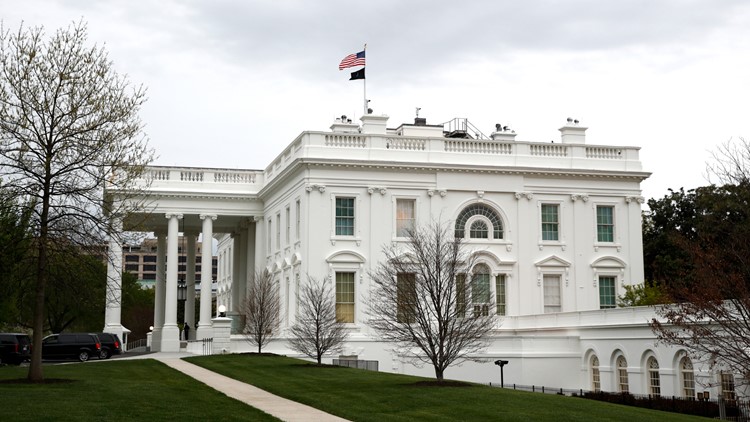INDIANAPOLIS — On Dec. 5, Fox News host Sean Hannity lobbed a softball question at Donald J. Trump. He tried to get Trump to tamp down fears he would install an authoritarian dictatorship if he wins a second term in 2024.
Did Trump have “any plans whatsoever, if reelected president, to abuse power? To break the law? To use the government to go after people?” he asked. Trump deflected. Hannity tried again: “You are promising America tonight, you would never abuse this power as retribution against anybody?”
“Except for Day 1,” Trump replied. He added later, “I said, ‘No, no, no — other than Day 1.’”
That underscored what President Joe Biden had said earlier in the day. “Trump’s not even hiding the ball anymore,” he said. “He’s telling us exactly what he wants to do.” Trump is “determined to destroy American democracy.”
The 81-year-old Biden made news himself that day, saying at a Massachusetts fundraiser that the only reason he’s seeking reelection is because Trump is seeking a comeback. “If Trump wasn’t running, I’m not sure I’d be running,” Biden said.
For the third consecutive presidential election, Americans will most likely be choosing from two wildly unpopular nominees in Biden and Trump. President Biden is vastly unpopular, with ABC News/FiveThirtyEight’s polling composite revealing 55.2% disapprove of his job performance while 38% approve. But Donald Trump is just as unpopular, with FiveThirtyEight on Tuesday showing that 57.9% disapprove and 38.6% approve.
Biden, multiple public opinion surveys suggest, is too old the continue in the world's toughest job, which has been constantly stressful due to wars in Ukraine, Israel/Gaza, and as well as the porous southern border. His vice president, Kamala Harris, is even more unpopular than he is.
The 78-year-old Trump is facing 91 criminal indictments — self-inflicted offenses that he is now using to discredit the American rule of law. When you hoard top secret documents detailing Iran invasion plans and U.S. nukes near your resort toilets, you're going to face charges.
By the time Trump is expected to be nominated at the Republican National Convention in Milwaukee next July, he could be the first former president to be convicted of a felony.
The oft-lament of voters in 2023 strikes a similar refrain I heard in 2016, which was: Out of 330 million Americans, are these really the best two candidates we have to choose from?
When Trump launched his third Republican presidential campaign last March, he chose Waco, Tex., as his backdrop. It was loaded with fringe right significance, coming 30 years after the siege between the U.S. government and the Branch Davidian religious cult that resulted in 86 deaths.
“In 2024 is the final battle — that’s going to be the big one,” Trump said in Waco. “I am your warrior, I am your justice. I am your retribution."
In a November "War Room" podcast, Trump advisor and self-described "Leninist" Steve Bannon declared, "We are the Trump Davidians."
Stuart Stevens, a Republican media consultant who has in the past advised the Indiana campaigns of U.S. Sen. Dan Coats and Secretary of State Sue Anne Gilroy, has written a book published in October, "The Conspiracy to End America: Five Ways My Old Party is Driving Our Democracy to Autocracy."
Stevens claims that Donald Trump has changed the GOP, in a way that Republican National Committeeman John Hammond III suggested to me in 2015 that there was an appetite in some GOP quarters for a "strongman."
"In Ronald Reagan's America, conservatives believed that to be born in the United States was to win life's lottery," Stevens writes. "The Reagan optimism was defined by opposition to the bleak totalitarianism of the Soviet Union. In Donald Trump's world, to be an American was to be a victim of powerful forces, globalist conspiracies and wealthier countries," he continued. "In the Republican view, the long trek from Ronald Reagan to Donald Trump traveled from a 'shining city on the hill' to a dark and frightening place of 'carnage.' Electing Donald Trump was an act of grievance, a way to settle the score.
"Americans have long possessed innate optimism, the conviction that they live in the greatest country in the world, and it will always be such," Stevens writes. "In Russia, as in the Soviet Union, any hope for positive change has proven illusory. Do not expect your leaders to make your life better because this is your fate.
"It is exactly that shared sense of victimhood that has defined the MAGA movement and driven the Republican Party toward autocracy," Stevens continues. "It reflects a complete collapse of the values that the Republican Party once espoused."
"In Trump world, the domestic terrorists of Jan. 6 are heroes," Stevens adds, with Trump saying in 2022, “I mean full pardons with an apology to many." Trump has described the nearly 600 Jan. 6 insurrection convicts as "hostages."
"Autocrats win when they master the freedoms of a democratic society to kill democracy. That is the path we are on today,” Stevens said.
"The collapse of American democracy is like the pandemic: Whatever you say at the beginning will sound alarmist but likely prove inadequate by the end. In 1864, (President Abraham) Lincoln wrote, 'You cannot escape the responsibility of tomorrow by evading it today.'" Stevens adds, "We should listen and act accordingly."
Brian Howey is senior writer and columnist for Howey Politics Indiana/State Affairs. Find Howey on Facebook and X @hwypol.



